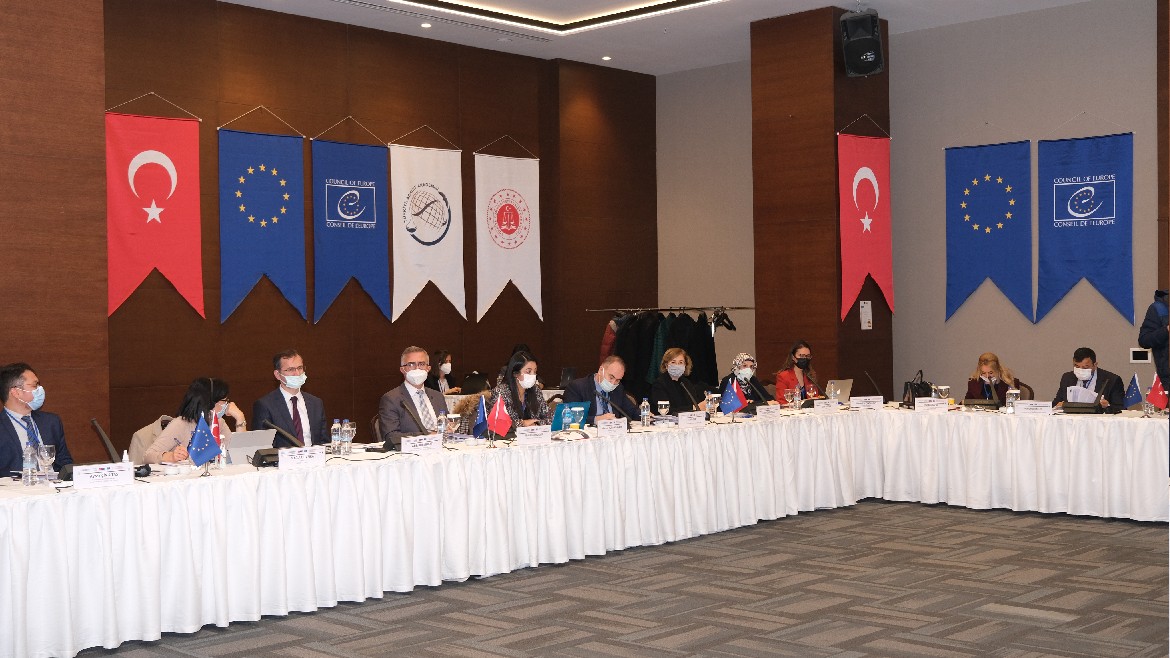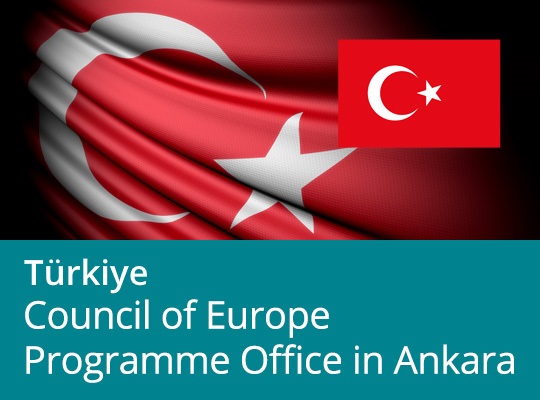The “Workshop on the Assessment of Alternative Dispute Resolution (ADR) Mechanisms in Family Law Procedures” was organised in Ankara on 9-10 December 2021 within the scope of the EU-CoE Joint Project on “Increasing the Effectiveness of Family Courts: Better Protection of the Rights of Family Members”.
In this context and particularly based on the needs concerning the effectiveness of divorce procedures, the benefits and risks of ADR mechanisms in general, and family mediation in particular, were assessed as potential and amicable alternatives to long and protracted family disputes involving high legal costs.
During the first day of the workshop, which started with the opening speeches of President of the Justice Academy of Turkey, Mr Muhittin Özdemir and the Head of the Turkey Unit of the Council of Europe Cooperation Programs Department, Ms Könül Gasimova, special focus was given to international best practices and standards, which were discussed in terms of the general pitfalls of the divorce proceedings. The discussions were amplified by the presentations of Council of Europe consultants on the “Problems regarding effectiveness in Turkish divorce proceedings and determination of disputes that could be included in ADR mechanisms” by Assoc. Prof. Gamze Turan Başara, on the “Swiss divorce law and amicable dispute resolution methods (conciliation, negotiation, collaborative law, mediation) and the practice of family mediation in Switzerland” by Attorney and Mediator Ms Cinthia Lévy and on the “European standards regarding ADR mechanisms in family law and the European best practices” by Attorney and Mediator Ms Maria Oliveira.
On the second day, the discussions focused on the current debates on family mediation, such as the options of the institutional structure of a possible family mediation and possible effects of it to the disadvantaged groups, notably women and children. Representatives of the General Directorate of Legal Affairs of the Ministry of Justice, Judge Nurdan Şahin and Judge Abdurrahim Taş presented the Ministry's work on family mediation to the participants. Finally, Council of Europe consultant and family therapist Dr Selenga Gürmen made a presentation on the “Assessment of ADR mechanisms in terms of preventing traumas and secondary victimisation on the part of the parents and children in divorce.”
Among the stakeholders participating in the meeting were family court judges from Ankara and İzmir Courthouses which were selected as pilot courts within the scope of the project, court experts (pedagogues, psychologists and social workers) from Ankara, İzmir, Sakarya, Mardin, Hatay, Ordu and Denizli, Ankara Regional Court of Justice, Court of Cassation, the General Directorate of Legislation, the General Directorate of Legal Affairs and the Department of Legal Support and Victim Services of the Ministry of Justice, the Child Rights Commission of the Union of Turkish Bar Associations, Ankara Bar Association Gelincik Center and KADEM representatives.
A Comprehensive Assessment Report will be drafted by a team of consultants comprising international and national consultants based on the outcomes of the workshop. The report will present practical recommendations for the use of ADR mechanisms in family courts, wherever appropriate and in line with the best interests of the child and the international standards on women rights, from a comparative viewpoint.
The “Improving the Effectiveness of Family Courts: Better Protection of the Rights of Family Members” Project is co-funded by the European Union and the Council of Europe and implemented by the Council of Europe and Justice Academy of Turkey. The Project aims to ensure rule of law and fundamental rights in Turkey as fully in line with international and European standards and to improve the effectiveness of family courts in protecting the rights of women, children, and other family members.




